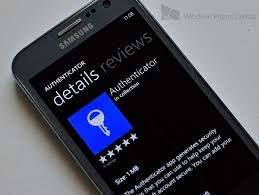 During the last few months we could see the addition of several changes and improvements to WhatsApp. The Facebook-owned app, which now counts more than one billion active users spread all over the world, is available for free for Android, iOS, Windows Phone and BlackBerry platforms and allows its users to chat, share videos and photos, to make calls and, now, video calls.
During the last few months we could see the addition of several changes and improvements to WhatsApp. The Facebook-owned app, which now counts more than one billion active users spread all over the world, is available for free for Android, iOS, Windows Phone and BlackBerry platforms and allows its users to chat, share videos and photos, to make calls and, now, video calls.
And the latest version that has just been released for Windows Phone devices follows this course of improvements and updates. This latest 2.16.300 stable version of WhatsApp for Windows Phone adds some of the new features that have already been spotted in previous betas such as the new button that allows users to convert video to GIF, the new two step verification, the possibility to draw or add text and emojis to photos and storage information. These updates come along with the usual bug fixes and performance improvements.
So, how can you install this latest 2.16.300 version of WhatsApp on your Windows Phone device? As we said above, this is a stable version of the app, so you can download it straight from the Windows Store.
And that’s not all. According to some rumors the Multiple Video Calling feature will soon be added to the app, but the news has not yet been confirmed by the developers of WhatsApp. If the news is correct, thanks to this new feature two or more contact can be added in the video group chat, but, as we said, this is all to be confirmed. What’s true is that now the application offers much more to its users, with the result that the life of the other services is getting even more difficult.
Cyber criminals are obviously trying to take advantage from the success of WhatsApp, and we often have to warn users about new scams. The last one in chronological order, according to The Sun report, is a particularly dangerous one, and exploits the release of the video calling feature. The scam works through an email message asking you to activate the option by visiting a website. Obviously WhatsAppers have been warned not to click on this link since it allows cyber criminals to rob users.
To help its citizens, the Pakistani government has even issued this advice: “By clicking the web link received through such an invite, the user is led to a legitimate looking process actually carried through a spoofed website carrying a malicious code. The process at the end asks the users to invite more friends which inevitably leads to further spread of the hack. Keeping in mind the popularity of Whatsapp with the messaging users, it is important that the Pakistani users are aware of this scam so that they can take immediate measures to limit exposure to its data protection consequences.“

 After the release of the much awaited video calling feature, other great news for WhatsApp users. Our beloved instant messaging app is in fact testing a new feature which will allow users to watch shared videos while they are being downloaded.
After the release of the much awaited video calling feature, other great news for WhatsApp users. Our beloved instant messaging app is in fact testing a new feature which will allow users to watch shared videos while they are being downloaded. Starting from this week WhatsApp will add encrypted video calling, that’s what Jan Koum said according to a Reuters report. This new service will further improve users’ privacy, and comes just after all the criticism addressed to WhatsApp because of the recent decision to share its users data with Facebook.
Starting from this week WhatsApp will add encrypted video calling, that’s what Jan Koum said according to a Reuters report. This new service will further improve users’ privacy, and comes just after all the criticism addressed to WhatsApp because of the recent decision to share its users data with Facebook. WhatsApp’s decision to share with Facebook its users data, including phone numbers, has caused big troubles and criticism
WhatsApp’s decision to share with Facebook its users data, including phone numbers, has caused big troubles and criticism Today we have great news for BlackBerry and Nokia users. The owners of our beloved instant messaging app have in fact decided to extend the support for BlackBerry 10 and Nokia platforms until June 2017.
Today we have great news for BlackBerry and Nokia users. The owners of our beloved instant messaging app have in fact decided to extend the support for BlackBerry 10 and Nokia platforms until June 2017. Great news for those of you who use WhatsApp with an iPhone: you can now send GIFs. This popular option is very used on social media, and messaging services such as Facebook, Twitter and iMessage already support it. And now GIFs have finally been added to WhatsApp for iOS, for the joy of the many users of the app.
Great news for those of you who use WhatsApp with an iPhone: you can now send GIFs. This popular option is very used on social media, and messaging services such as Facebook, Twitter and iMessage already support it. And now GIFs have finally been added to WhatsApp for iOS, for the joy of the many users of the app. European governments are giving a hard time to Facebook and WhatsApp after their
European governments are giving a hard time to Facebook and WhatsApp after their